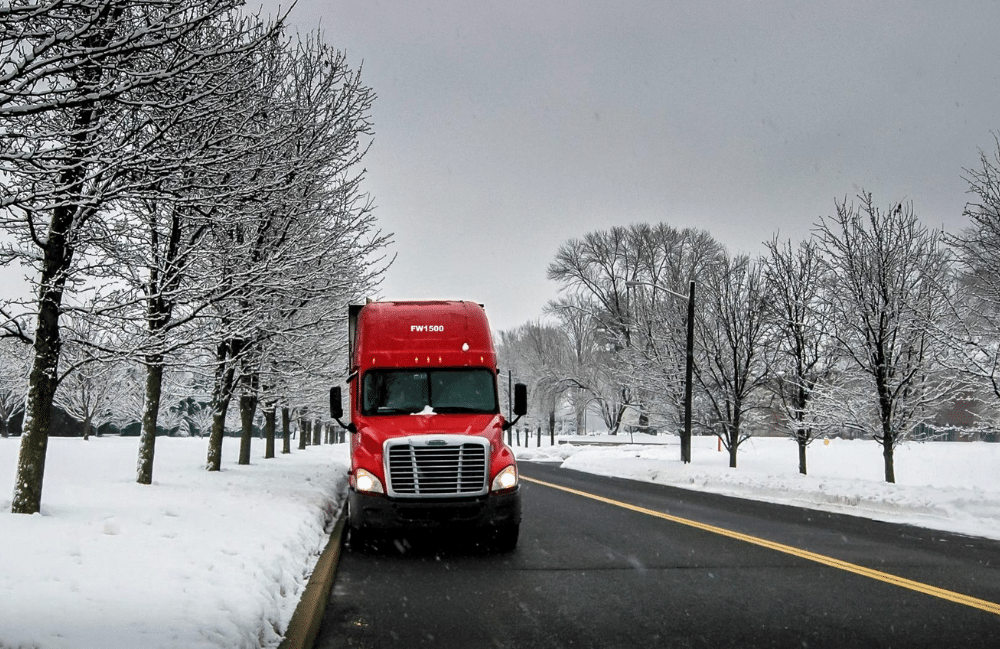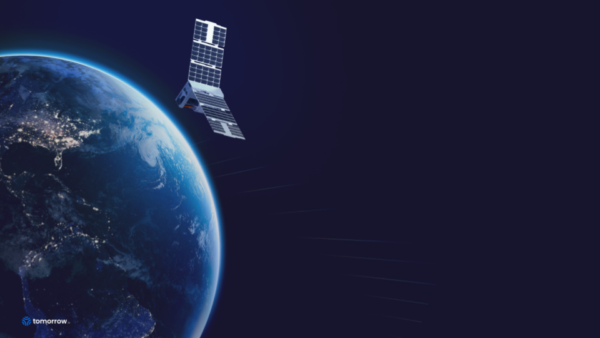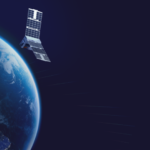This article originally appeared in FreightWaves in February 2022
ITS ConGlobal, North America’s largest integrated intermodal services provider, has been a leader in the logistics industry for over 50 years. But it’s not just their decades-long customer relationships or industry-leading technology capabilities that allow them to stand out.
They have a key (and often overlooked) competitive advantage—weather intelligence.
With outdoor depot job sites across the world, high winds are among the biggest risks to ITS ConGlobal’s container stacks, which can be layered eight high for efficiency. A blow-over could cost anywhere between $5,000 and $20,000 per container, so leaving it to chance is not a risk the company can take.
Traditional weather forecasts don’t provide the granularity or actionability needed to ensure these containers stay in place. That’s why ITS ConGlobal relies on advanced, hyperlocal weather technology from Tomorrow.io to decide on whether to “groom” stacks in a more wind-resistant way. Tomorrow.io, a weather intelligence company, provides pinpoint accuracy on the intensity, duration and location of the winds, among many other weather data points, offering more reliable, relevant information than any other forecast.
While it can be difficult to know whether an accident was avoided, ITS ConGlobal actually has evidence that weather intelligence and its team’s responsive actions made a difference.
“We can say affirmatively that we’re avoiding instances of blown-over or damaged containers when we see neighboring operations having blown over container stacks following a shared wind event,” said Brant Ring, CEO of ITS ConGlobal.
An advantage like this at scale could mean the difference between growing profits and or losing those margins. And as many logistics companies have experienced, the pandemic-induced highs in the freight industry have finally come crashing down. Over the second half of 2022, lowering demand, rising fuel prices, increased competition and a global trade drop created the perfect storm for a potential slowdown.
In fact, in a recent FreightWaves webinar poll, 84% of respondents said they’ve already felt the impact of the downturn. Logistics companies are now trying to find a way to bounce back and forge on.
“We have to find better ways to reduce costs without making our businesses less safe and less effective. As usual, the bar is high,” said industry expert Joe Lynch, host of “The Logistics of Logistics” podcast, during the webinar.
Emerging stronger through technology
In the middle of economic uncertainty, most companies must make some alterations to their businesses to survive. However, driving change requires more than just trimming unnecessary or unprofitable services. It involves investing in solutions that will usher in long-term impact in a short amount of time.
“Across the whole supply chain, we’ve seen the advantages have gone to people who’ve invested in technology,” Lynch said. “Of course, assets — owning trucks, owning warehouses — is great. But … companies are trying to make their dollars go farther and usually they’re doing that with technology these days.”
Over the last two decades, technology has rapidly become more affordable, powerful and faster to implement with the rise of software-as-a-service offerings, making it one of the easiest things a company can do to make a real impact.
Visibility tools, for example, once offered companies a steep competitive advantage. With unprecedented access into vehicle tracking, route optimization and hours-of-service monitoring, they were suddenly able to quickly level up operations and customer service.
But with visibility tools now commonplace, they no longer offer the same competitive edge. Now companies must continue to innovate or risk falling behind.
Lynch believes the next big differentiator will be built-in technology solutions that businesses can wield to overcome the most widespread challenge drivers face all day, every day on the road — the weather.
Making weather intelligence your competitive advantage
Weather poses a constant threat to carriers and private fleets. But without an advanced solution, they’re vulnerable to a range of threats, from costly accidents and delayed deliveries to high driver turnover and decreased productivity.
“[Drivers] are constantly spending their days planning and replanning … that is often around the weather,” Lynch said.
Despite the threats, most companies still rely on manual, disjointed methods of weather monitoring. And according to the webinar poll, nearly one-third of firms have no process in place at all.
“When safety teams don’t have an advanced, scalable process in place, it wastes a lot of time that could be spent coaching drivers and identifying other areas of improvement for the team,” said Ayala Rudoy, Tomorrow.io’s vice president and general manager of transportation.
Tomorrow.io’s weather intelligence technology provides a solution. With real-time monitoring, predictive insights and automated alerts, it allows fleets to easily track everyday and critical weather events along their routes. Fleets can set up notifications for drivers and create customized, actionable steps to take in response to weather conditions.

Highly localized weather intelligence, in the context of the transportation and logistics industry, can help reduce downtime and wasted miles and improve safety and reliability. Ultimately, this will set a private fleet or carrier apart from others at the mercy of manual weather checks and vague warnings.
Looking beyond short-term fixes
Just like ITS ConGlobal, Nussbaum Transportation also sees the results of weather intelligence monitoring and plans on expanding its partnership with Tomorrow.io.
Nussbaum, a carrier based in Hudson, Illinois, first experienced the benefits of weather intelligence just a week after it became a customer.
During the week of Christmas 2022, a historic winter storm swept across the U.S. Blizzard-like conditions put trucking companies at an increased risk of accidents, slowed deliveries and lowered profits — all during their busiest time of year.
“A colleague and I were in Tomorrow.io, and we saw a driver on Interstate 80 going 50 mph when every other truck was going 30 mph or slower,” said Rick Schmidt, Nussbaum’s director of human resources and safety. “We were able to call him and talk through the scenario, the wind, his load, etc. That was a big positive for him.”
In doing so, Nussbaum did something competitors couldn’t — take a proactive stance against weather.
It likely avoided an accident, each of which costs at least $150,000, and kept the truck moving, which generates $1,000 per day in revenue, according to Nussbaum.
This experience also offered an invaluable opportunity for coaching the driver.
“The goal with Tomorrow.io and the implementation process is being able to give confidence to drivers and give them tools so they can make those decisions themselves,” Schmidt said.
In the long term, Nussbaum’s drivers and dispatchers will use Tomorrow.io for more efficient trip planning around the weather. Schmidt expects the company will see even more benefits over time, such as avoiding accidents, cutting down on idle time, reducing driver churn and improving customer satisfaction.
Reaping benefits throughout supply chain
It is more than just the technical, data-driven side of Tomorrow.io that benefits ITS ConGlobal.
Integrating safety protocols into everyday procedures, rather than just pulling out a three-ring binder from a desk when something goes wrong, has helped drive quality service.
“The reason we have fully embedded this into all of our sites … across our footprint as a core capability is the partnership that we have with Tomorrow.io in terms of helping us operationalize and digitize our protocols and then customize those into dashboards,” Ring said.
By making weather preparedness an integral part of its operations, Tomorrow.io has helped ITS ConGlobal improve its customer satisfaction through improved safety, better quality and reliability.






